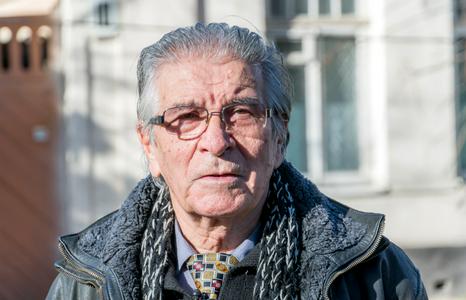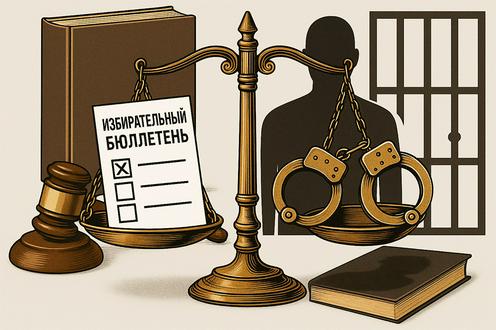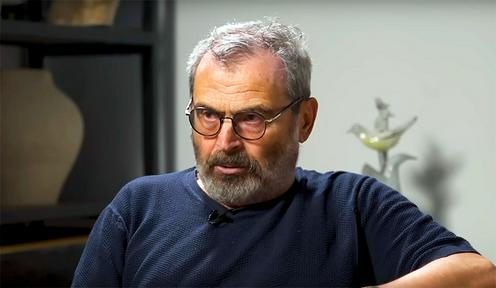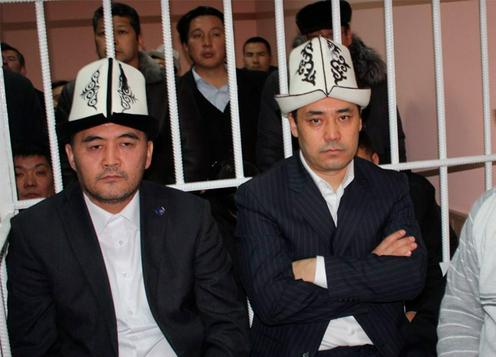Kyrgyzstan’s parliament has passed a law that bars citizens with expunged or overturned criminal convictions from being elected to executive or legislative bodies—or from running for president. In principle, individuals with criminal records were already restricted from holding such positions. However, there was one crucial caveat: if the conviction had been expunged or overturned, the political restrictions were lifted as well.
Spotless Reputation
Under the new law, a person with a criminal record—even one that has been cleared—can no longer run for president or parliament. Moreover, they are also barred from holding high-level administrative positions, such as ministerial posts, membership in the Central Election Commission, seats on the National Bank’s board, or roles such as auditor in the Accounts Chamber.
This bright idea came from the State Committee for National Security (SCNS) and its head, Kamchybek Tashiev. The official rationale for the law states that it aims to “prevent individuals whose past unlawful acts—regardless of whether their criminal records have been expunged or overturned—may call into question their impeccable reputation and ability to act solely in the interests of the state and its citizens” from gaining access to top government positions.
Of course, the first thing to say is that a clean criminal record does not guarantee an impeccable reputation—and vice versa. In the republic’s history, there have been individuals with excellent reputations who nonetheless had criminal convictions. One example is Kyrgyzstan’s tenth prime minister, Feliks Kulov. His conviction was not handed down by a court of independent justice but by then-president Askar Akayev—Kulov’s political rival and competitor. All charges against him were eventually dropped, and he was fully acquitted.
Naturally, this new law is not aimed at the typical tattooed thief whose ink reads “Never Forget My Mother.” That crowd, as they say in prison, keeps their head down and doesn’t get involved in politics. The law primarily targets opposition figures and independent politicians who are not integrated into the current power structure.
Here’s what Arkady Dubnov, a political analyst and Central Asia expert, had to say about the law:
“From the outside, the law’s stated purpose might appear impeccable in moral or even political terms. But—as people like to say nowadays—there’s a nuance. In today’s Kyrgyzstan, such a law ends up being twisted into something profoundly immoral and politically dishonest.”
It is well known that Kyrgyzstan’s judicial system has been highly politicized over the past few decades. Court rulings—both in the capital and in the provinces—have often served the interests of those in power. As a result, some people found themselves, as the saying goes, guilty without guilt. Later, many of these convictions were expunged or overturned as unfounded. Yet under the new law, even such individuals will now be barred from holding executive or legislative office.
This is why I believe the critics of this law—both inside and outside Kyrgyzstan—are right. These critics are not necessarily human rights activists; they may simply be observers with common sense, responsibility, and a clear understanding of what is really going on. I would argue that under the current conditions in Kyrgyzstan, such a law has no right to exist.
And here’s an important detail: according to this law, the current president of Kyrgyzstan himself would have had neither the moral nor the legal right to run for such high office. The same goes for a number of other individuals who today occupy government posts with complete impunity.
Lost All Sense of Proportion
Indeed, it’s no secret that both the current president of Kyrgyzstan, Sadyr Japarov, and the head of the State Committee for National Security (GKNB), Kamchybek Tashiev, have served prison terms. So what does this mean—they get a pass, but no one else does? “Honor among thieves” no longer applies? Why such sudden moral rigidity?
It’s entirely possible that the country’s leadership is drawing on their own difficult pasts—and that this experience has led them to believe that anyone who’s ever spent even a day behind bars cannot be trusted. But if that’s really the case, then both the president and the head of the GKNB should be consistent and resign from their posts—after all, they too have criminal records.
Then again, it seems that not all convictions are created equal. In this instance, we can be quite certain that the law won’t be applied retroactively, and no one will be asking those now occupying high office in Kyrgyzstan: Excuse me, which prison camp did you serve time in before reinventing yourself as a savior of the nation?
Naturally, this kind of framing is bound to irritate certain individuals with criminal records who have already found their way into positions of power. They themselves might snap back: “And who the hell are you to be digging into my past—some kind of prosecutor? Or just seriously out of line?”
But let’s be honest—that’s not a real answer. At some point, a person needs to decide who they are: are you a “real man” who lives by the code of the streets, or are you a public servant who abides by the rule of law? You can’t have it both ways. One day he’s swaggering in the sauna with his fingers splayed like a made man; the next, he’s in a suit on the podium delivering lofty speeches about justice and integrity.
Some political analysts, by the way, argue that this new law is largely redundant. After all, the political field in Kyrgyzstan has already been effectively cleared—and there are no strong opposition figures left to keep out anyway.
To begin with, not everyone will agree with this interpretation. And second, even if today there are no strong opposition figures in Kyrgyzstan, that doesn’t mean they won’t appear tomorrow. What then? You could try to swat each dissident politician like a fly, one by one—but it’s far more efficient, fairy-tale style, to wipe them all out with a single blow. And the new law makes that possible.
Back in the late 1990s, former Kazakh prime minister Akezhan Kazhegeldin caused no small headache for then-president Nursultan Nazarbayev when he attempted to run for president against his wishes. Kazhegeldin was barred from the race over an administrative offense—he had allegedly crossed the street against a red light. The episode looked, on one hand, authoritarian; on the other, petty and almost laughable.
It seems the current leadership of Kyrgyzstan wants to avoid repeating its neighbor’s mistakes—so it's making new ones of its own. The aim is for everything to appear proper, legal, and most of all, effective. Today, it’s easy enough to engineer a conviction against any politician or public figure—and some already carry one. Under the new law, such individuals are automatically barred from the political and administrative arena. For the authorities, that’s a godsend. No need to expend energy or time waging a political fight. No need to publicly argue with your critics.
Opposition figures are always a nuisance. They raise their voices, stir the pot, and foul the air in the fragrant political smog of the homeland. Trying to silence them one by one would drive anyone mad. So it’s much more convenient to impose broad restrictions on the «unreliable»—an electoral filter tailor-made for those already in power.
Between a Thug and an Academic
Electoral qualifications, in principle, are nothing unusual for a democracy. And since democratic institutions—dating back not just centuries but millennia to Ancient Greece—have existed for so long, the system of electoral requirements is generally well-developed. Still, there are variations.
Some qualifications are nearly universal—for example, age. This usually concerns the minimum age at which a person is allowed to vote (active suffrage) or run for office (passive suffrage). In Central Asian countries, as in most modern states, citizens can vote starting at 18. But in some places, voting starts as early as 16, as in Brazil, Austria, and Cuba. In others, you have to wait until you’re 20—as in Japan and Finland—or even 25, as in the United Arab Emirates.
To exercise passive suffrage, the age threshold is naturally higher—and understandably so. A recent high school graduate, lacking sufficient life experience, is unlikely to perform effectively as a member of parliament, let alone as president. That’s why in Tajikistan, the presidency is limited to those over 30; in Uzbekistan and Kyrgyzstan, over 35; and in Kazakhstan and Turkmenistan, over 40.
But alongside clear and reasonable restrictions—such as citizenship or fluency in the national language—there are more exotic qualifications, like racial or so-called “moral” requirements. The last racial qualification, which barred people of certain races or ethnic minorities from voting, was abolished in South Africa in 1993. The moral qualification, on the other hand—requiring a person to lead a respectable life and demonstrate high ethical standards—has been used in various countries, including Mexico, Iceland, and the Netherlands.
Interestingly, in 2022 Kazakhstan listed a university degree among the requirements for presidential candidates. This makes a certain amount of sense: an educated president is presumably better than an uneducated one. But at times, the push for formal credentials takes on rather grotesque forms.
In the early 2000s, a peculiar trend swept through Russia’s bureaucratic and business elite: an obsession with academic titles. Officials and entrepreneurs began flaunting Ph.D.s and doctoral degrees—credentials often obtained with little more than money and connections. Hired ghostwriters churned out dissertations, which were then rubber-stamped through the academic system with astonishing ease. Soon, the country was teeming with fake candidates of science, doctors, and even academicians—many of whom had no real understanding of research and, in some cases, couldn’t even recall the title of their own thesis.
Eventually, even President Vladimir Putin grew tired of the charade. He publicly declared that officials should choose one path: either public service or academic work. If they were truly such distinguished scholars, he said, they should vacate their government posts and devote themselves to science.
The final blow came with the launch of Dissernet, a grassroots initiative aimed at exposing plagiarism in academic dissertations—including those written by high-ranking officials. After several high-profile scandals, the “academic activity” of Russia’s civil servants noticeably died down.
To continue discussing judicial restrictions, it’s clear this is a complex and contentious issue. Whether to limit the political rights of those with criminal records or those under investigation is a decision each country makes based on its own history, culture, and political context.
In Russia during the 1990s, the laws were relatively lenient, allowing even individuals with unresolved convictions to participate in elections. However, the rules later tightened. Currently, individuals serving prison sentences are barred from holding public office.
An interesting precedent occurred in 1994 with Sergey Mavrodi, the founder of the financial pyramid scheme “MMM.” He was arrested on charges of income concealment and faced a serious prison term. However, his team registered him as a candidate for the State Duma, which under the laws at the time allowed him to be released from custody until the elections. This case exposed a loophole in the law and became one of the reasons for the tightening of judicial restrictions.
On October 30, 1994, Mavrodi was elected to the State Duma, but he refused the deputy’s salary and all privileges, from a country house to an official car. However, he attended a Duma session only once and openly admitted that his interest was not politics, but parliamentary immunity.
At that time, Russian authorities took this incident into account and restricted the voting rights of people targeted by the judiciary. In the case of the blatant swindler Mavrodi, this might not seem entirely unfair. However, today this rule is wielded like a blunt instrument, crushing everyone indiscriminately—including political opponents of the Russian government, and indeed primarily targeting them.
The same can be said of the new Kyrgyz law. Regardless of the official justifications given by government officials, it is clearly discriminatory and effectively reduces the chances of independent politicians and the opposition to nearly zero. Meanwhile, the position of the current authorities becomes almost unassailable and detached from the will of voters, who are left with no choice but candidates approved by the regime.
Summing up everything said above, one naturally asks: can a state that adopts such laws truly be called democratic? Unfortunately, the answer is obvious.
-
 14 February14.02From Revolution to Rupture?Why Kyrgyzstan Dismissed an Influential “Gray Cardinal” and What May Follow
14 February14.02From Revolution to Rupture?Why Kyrgyzstan Dismissed an Influential “Gray Cardinal” and What May Follow -
 05 February05.02The “Guardian” of Old Tashkent Has Passed AwayRenowned local historian and popularizer of Uzbekistan’s history Boris Anatolyevich Golender dies
05 February05.02The “Guardian” of Old Tashkent Has Passed AwayRenowned local historian and popularizer of Uzbekistan’s history Boris Anatolyevich Golender dies -
 24 December24.12To Clean Up and to ZIYAWhat China Can Offer Central Asia in the “Green” Economy
24 December24.12To Clean Up and to ZIYAWhat China Can Offer Central Asia in the “Green” Economy -
 23 December23.12PhotoTokyo DriveJapan to invest about $20 billion in projects across Central Asia over five years
23 December23.12PhotoTokyo DriveJapan to invest about $20 billion in projects across Central Asia over five years -
 17 December17.12Sake for SixCentral Asia’s Rapprochement with Japan Comes with Hidden Pitfalls
17 December17.12Sake for SixCentral Asia’s Rapprochement with Japan Comes with Hidden Pitfalls -
 17 December17.12Gulshan Is the BestYoung Uzbek Karateka Becomes World Champion
17 December17.12Gulshan Is the BestYoung Uzbek Karateka Becomes World Champion






